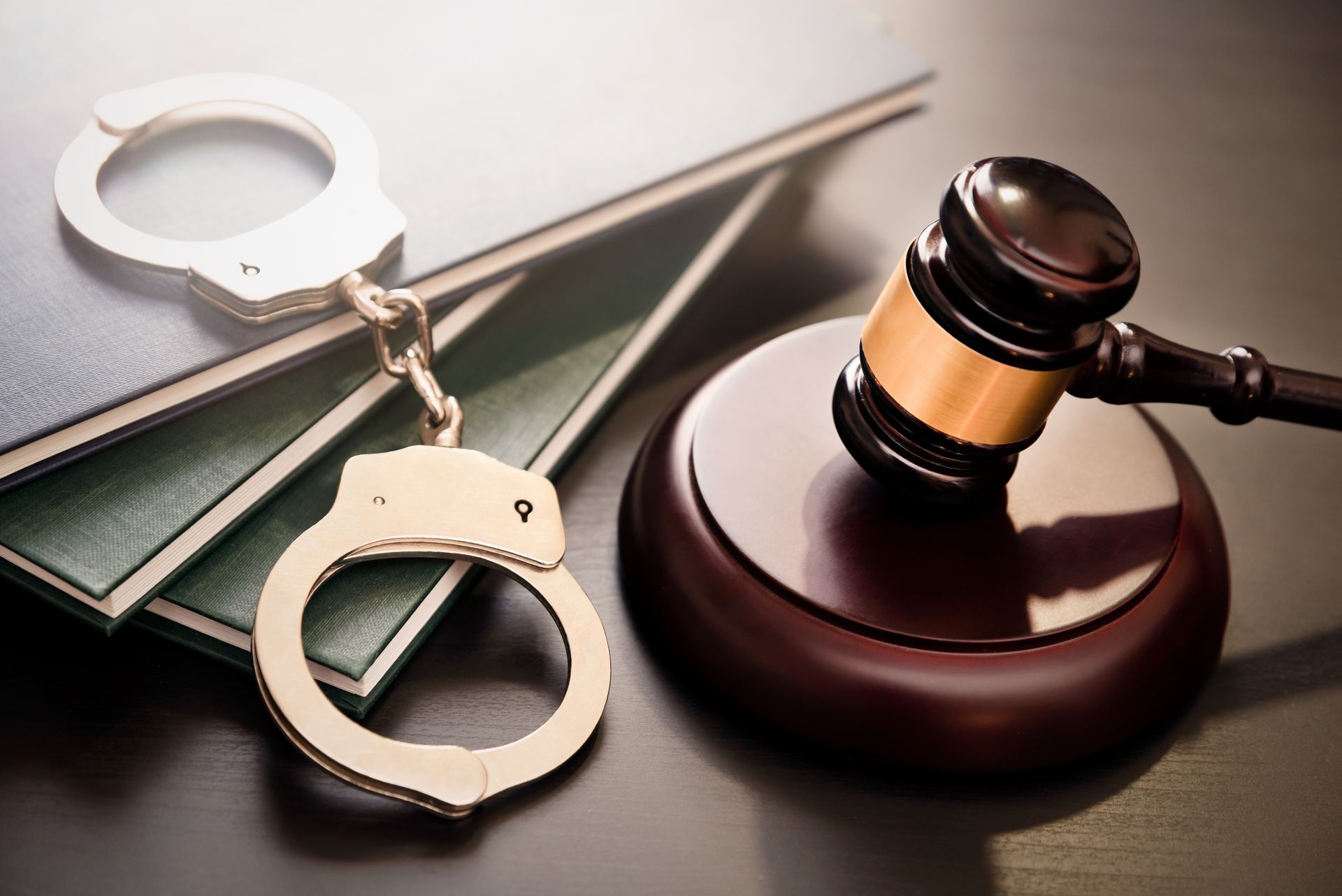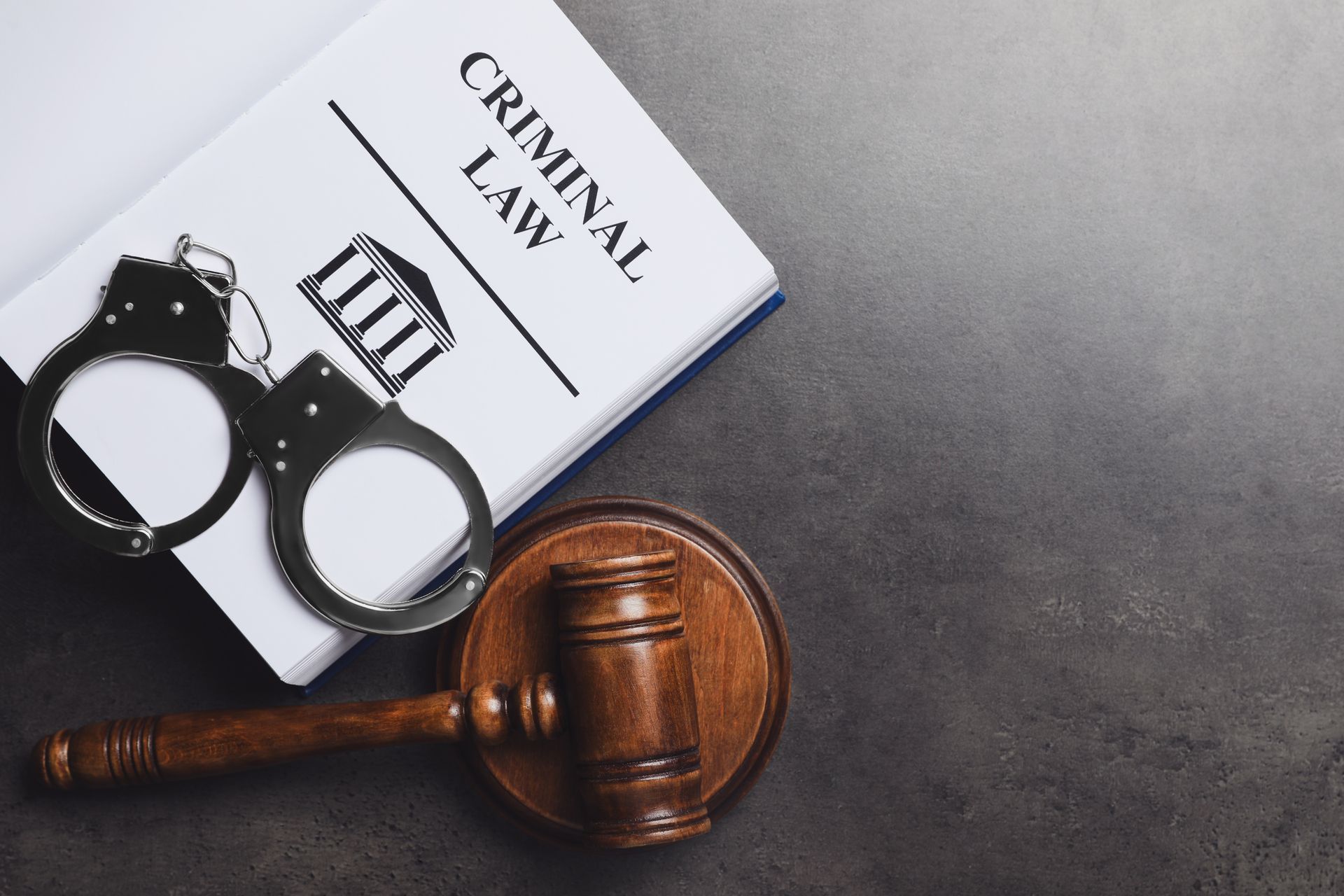Five Things You Need to Know About Trademarks
We are going to talk about the five things you need to know about trademarks, by answering five questions most people ask me about trademarks. . .
- What is a Trademark?
- What are some myths about trademarks?
- What exactly does a trademark protect?
- What is the trademark process like?
- What to do if someone uses your trademark?
So let’s dive right in. . .
1. What is a Trademark?
The USPTO defines a trademark as this.
A trademark is a word, phrase, symbol, and/or design that identifies and distinguishes the source of the goods of one party from those of others.
A service mark is a word, phrase, symbol, and/or design that identifies and distinguishes the source of a service rather than goods.
Some examples include brand names, slogans, and logos. The term "trademark" is often used in a general sense to refer to both trademarks and service marks.
Many people get trademarks confused with patents and copyrights, so let’s talk about that briefly as well.
A patent is a limited duration property right relating to an invention, granted by the United States Patent and Trademark Office in exchange for public disclosure of the invention. Patentable materials include machines, manufactured articles, industrial processes, and chemical compositions. The duration of patent protection depends on the type of patent granted:
- Design Patents - 15 years from issuance for applications filed on or after May 13, 2015 (14 years from issuance if filed before May 13, 2015)
- Utility patents and plant patents - 20 years from the date on which the application for the patent was filed in the United States or, in special cases, from the date an earlier related application was filed.
A copyright protects original works of authorship including literary, dramatic, musical, and artistic works, such as poetry, novels, movies, songs, computer software, and architecture. The duration of copyright protection depends on several factors. For works created by an individual, protection lasts for the life of the author, plus 70 years. For works created anonymously, pseudonymously, and for hire, protection lasts 95 years from the date of publication or 120 years from the date of creation, whichever is shorter.
2. What are Myths about trademarks?
Debunked
- LLC is not a trademark, neither a domain name, tradename or DBA
- Don’t need an LLC to have a trademark
- LegalZoom and Rocketlawyer with the sheer volume of cases, it’s hard to get the same quality of service. LegalZoom doesn’t think about what class something really belongs too.
- Trademarks are owned in entirety, only in connection with the categories of goods/services in which you apply.
- Anything more than words, it is a design mark, if the mark just works, then it is a word mark.
USPTO examines every application for compliance with federal law and rules. The most common reason to refuse registration is a “likelihood of confusion” between the mark of the applicant and a mark already registered or in a prior-filed pending application owned by another party. The USPTO determines that a likelihood of confusion exists when both (1) the marks are similar, and (2) the goods and/or services of the parties are related such that consumers would mistakenly believe they come from the same source.
3. What exactly does a trademark protect?
- Ensure you're not infringing on someone else's brand before you start, it can result in costly lawsuits.
- Enforce your brand against other infringers, you have certain legal duties as a brand owner.
- Protection comes from local, state, and U.S.
Local Protection
Trademark rights are granted the moment you use a mark for commercial purposes. These are referred to as common law trademark rights. Once you begin using the mark, it is yours without the requirement for official registration. However, there are extra protections you gain from official registration.
Once you begin using a trademark “in commerce” even if it’s not registered, it gains local protection – meaning only in the area in which you’re selling or offering the product or service. So if another business tries to offer a similar commodity with a similar name in the same area, you have a strong legal case to get them to stop.
In most cases that protection doesn’t extend to other geographic regions, though, so if a competitor elsewhere has a similar name, you may find it difficult to have a legal case to stop their usage of the trademark.
State Protection
Specifically, registering with the state gives you a filing date that is official and will carry weight in court should you have to defend your trademark. This can be important not only in stopping others from using your mark but in defending yourself against accusations that you have infringed on someone else's work.
U.S. Protection
You gain a great deal of leverage by filing your trademark with the USPTO. Registration automatically gives you national protection, a stronger case, and the presumption of national ownership should another party, regardless of location, attempt to claim infringement against you.
In addition, registration serves as a notification that someone owns and uses the trademark. It becomes a matter of public record, searchable by others.
Also, some states have laws in place that work alongside federal trademark laws to help you avoid unfair competition and setting liability standards because of a greater available body of case law. Where gaps in enforcement exist, state common laws can help to fill the holes. Moreover, they can afford remedies beyond those specified in the Federal Lanham Act.
Advantages to Federal Trademark Protection
Federal trademarks supersede state ones at almost every level. Besides having priority if the federal registration was filed first, the following benefits apply to possessing a federal as opposed to a state mark:
- Federal registrations give you a basis to file in other countries, including the Madrid Protocol.
- Federal trademarks can allow you to stop imports that are unauthorized and use your mark.
- Federal trademarks give you ownership across all 50 states, plus all U.S. territories.
- Federal trademarks allow you to use the ® symbol.
- You can file infringement suits in federal courts
- Your mark will be listed in the U.S. Patent and Trademark Office (USPTO) database.
- You can file before you begin using the trademark.
- You may be eligible for much greater awards in cases of infringement of federal marks, including attorney's fees, court costs, incontestability, and enhanced damages in cases of malicious, fraudulent, or willful infringement.
Those who aren't U.S. nationals can count on Section 44 of the trademark statute to file a federal application based on ownership of a foreign trademark in their home country and an intent to use in the U.S. No use of the mark needs to exist within the U.S. at the time of filing, though eventually, the mark must be used to avoid cancellation.
Once you have protection, how do you let people know your mark is protected?
Designations
- Basic protection without registration
- ™
- sm
- Registered mark
- ®
- International classes
- Goods
- Services
Benefits of a Federal Trademark Registration
There are two types of registration: supplemental and principal register
- Supplemental Register
- Use the ® symbol
- Can file a trademark infringement lawsuit to go after monetary damages, infringer’s profits, damages, costs, treble damages, and attorney fees
- Bars other confusingly similar marks
- May serve as a basis for international app (80 countries participate, but country still have to approve.
- If you use it for five years, it can be approved to be a principal registrar
- Principal Register
- All the benefits from above
- Presumption that the mark is valid
- Registrar is the owner
- Exclusive right to use the mark
- Proof that mark has acquired a secondary meaning
- Use as constructive notice, so no defense of good faith adoption
- Nationwide priority
- After 5 years, incontestable.
4. What is the Trademark Process like?
For State Registration
A person who uses a trademark or service mark in this state may apply with the Secretary of State to register a mark.
The Secretary of State's office maintains a searchable database of trademarks and service marks registered in this state.
The Secretary of State's office does not resolve conflicts over ownership of registered trademarks and service marks.
It is the applicant's responsibility to determine if a mark is already in use in other states or has been filed with the United States Patent and Trademark Office (USPTO). Failure to do so may result in a civil action being filed against you. The acceptance of a trademark filing by the Indiana Secretary of State does not establish rights to the mark.
Steps to Trademark Process for Federal Registration
- Consultation
- Intake Form/ Engagement Letter
- Go look up classification in the ID Manual
- Clearance search report
- Attorney Analysis and Assessment
- Filing the Application
- Responding to Office Actions (if any)
- Publication
- Certificate of Registration
- Protection and Maintenance of the Mark
What can you do to protect your mark?
Duty to Police Your Mark
- Failure to police= lose rights
- Police against: infringement, attempts to register similar marks, and genorcide (ex. Aspirin, Cleanix)
Trademark Monitoring
Monitoring notifies trademarks owners of third party filings
Services you can buy to do it
- Registration HELPS!
- Ebay verified rights owners (VeRo)
- Amazon Brand Registry
- Alibaba IP Protection Platform
Google Yourself
Cease and Desist Letter
- Investigate carefully-- make sure client has superior rights
- Set the right tone -- likely intentional or accidental
- Use facts, not hyperbole
- Be ready to enforce if necessary -- DJ Action
Opposition and Cancellation Action
- When conflicting mark makes it past the U.S. Trademark Examiner, others that are likely to be harmed by registration can Oppose the Mark (must file within 30 days of publication)
- Cancellation Actions -- can be filed to cancel registration of a mark, only on the grounds of : mark being generic, functional, abandoned, fraudulently obtained, likely to cause confusion with a prior mark or registration, or (if filed within 5 years) descriptive, but lacking in acquired distinctiveness such that the mark is not primarily an indicator of source.
Federal Court Complaint
Elements of Claim
- Plaintiff’s ownership of a valid and enforceable
- Def use of a confusingly similar mark in connection with the same or related goods or services
- Use of mark in interstate commerce
- May also plead state statutes.
Likelihood of Confusion Factors
- Strength of Plaintiff’s Mark
- Similarity of Marks in appearance, sound, connotation, and commercial impression.
- Evidence of actual consumer source or sponsorship
- Extent of any overlap of the marketing channels for plaintiff’s and defendant’s relevant product and services.
- Similarity and relatedness of goods and services
- Consumer care and sophistication
- Alleged infringer’s intent
- Likelihood that the trademark owner should expand into sales of the type of product defendant sells.
Dilution Claims
- Only famous marks throughout the US
- Elements
- Ownership of mark is valid (plaintiff)
- Defendant’s use is similar likely to impair or harm reputation
- No need for competitive or similar goods or services.
Conclusion
If you are a business owner, you could use some legal help on trademarks, do not hesitate to contact my law office at justincamperlaw.com!
I hope you enjoyed this blog! Check out my podcast, if you haven't already! In the next podcast episodes to follow, I will be interviewing some of my clients who are successful small business owners, nonprofit owners, and podcast hosts. Also, I will also be giving more teaching lessons on legal topics for business owners, legal tips for running a podcast, things you need for online protection, and so much more.
Feel free to reach out to me if you have any ideas or if you want to be a special guest on the Small Business Saturday Podcast!! Talk to you soon!








